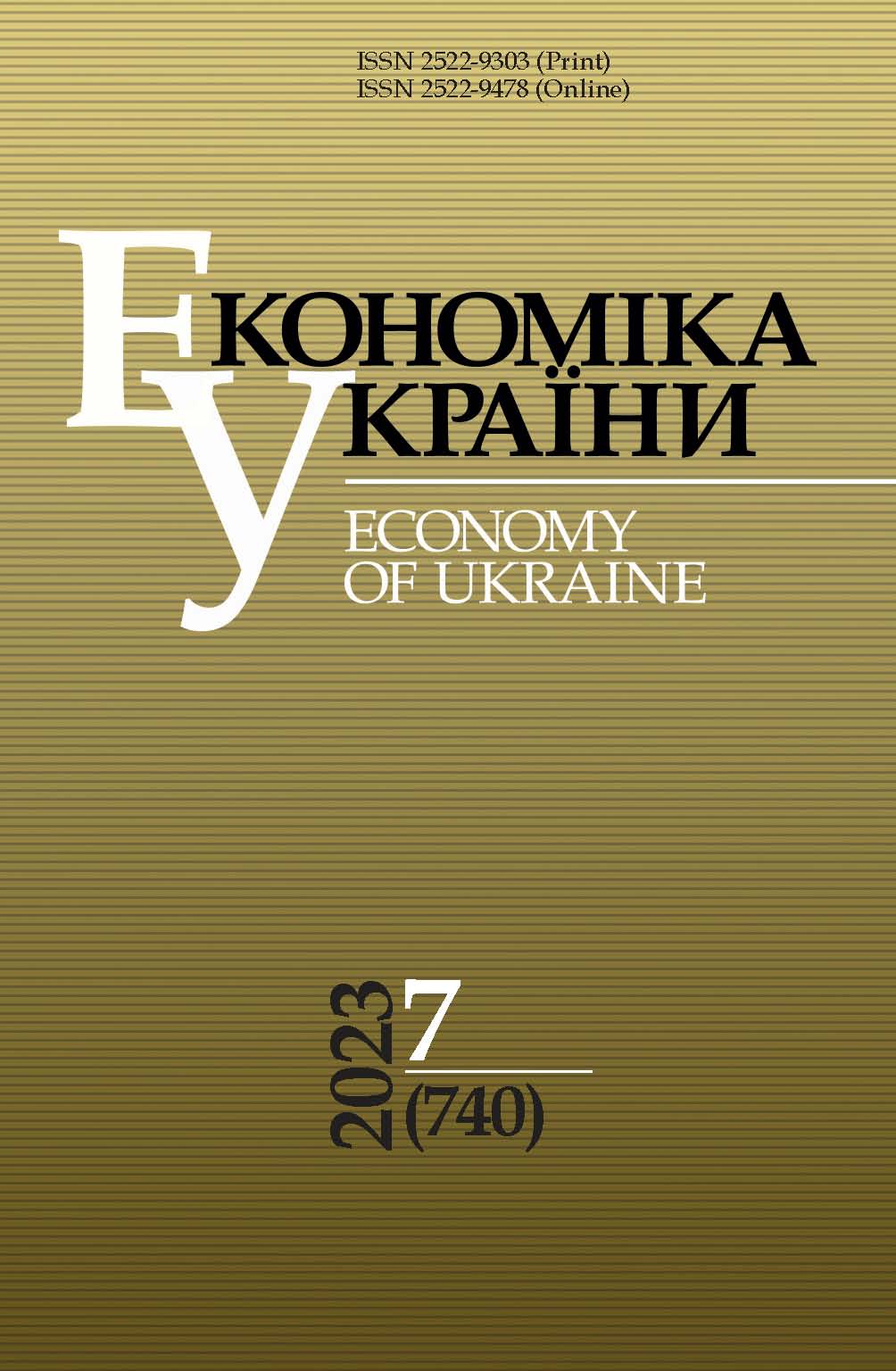FRAGMENTATION OF THE GLOBAL ECONOMY: THE RISK ASPECT
DOI:
https://doi.org/10.15407/economyukr.2023.07.031Keywords:
fragmentation of the global economy; globalization; risks of the global economy; economy of UkraineAbstract
The development of the global economy in the conditions of its transition from globalization to fragmentation is studied. Fragmentation is one of the consequences of Russia's armed aggression against Ukraine and has the potential to cause the division of the world into geopolitical blocs with their own technical standards, reserve currencies and payment systems.
It is established that the fragmentation of the global economy determines the development and new substance of the main global-level risks. Such risks include: risks of unpredictable global shocks; global warming risks; food and water security risks; social conflicts risks.
It is proven that the fragmentation of the global economy is intensified by Russia's large-scale aggression against Ukraine, due to which efforts are diverted from tackling the issues of the global economy, and the consequences of the war for the latter in short and medium run are negative. All this increases the destructive effect of fragmentation and makes it extremely problematic for the global economy to return to the previous decade’s level of globalization development.
The main impact of fragmentation on the risks of the global economy is that the reversal of globalization processes per se diverts attention from solving the global problems of humanity. As long as this is combined with the sources of fragmentation itself, the further the latter develops, the more the main global-level risks of the world economy will stay beyond adequate response.
Conclusions are made regarding Ukraine’s economic development in the context of the risk aspect of global economy fragmentation. The factor of large-scale aggression against Ukraine leaves open a number of additional questions related to the end of hostilities, the post-war reconstruction of the national economy, the correlation of political and economic forces in the world after the end of the war, etc.
References
Kistersky L. Strategic principles of Ukraine's post-war recovery. Economy of Ukraine, 2023, No. 2, pp. 3-16 [in Ukrainian].
doi.org/10.15407/economyukr.2023.02.003
Heyets V. On the question of theory and practice of social quality policy in post-war Ukraine. Economy of Ukraine, 2023, No. 4, pp. 3-22 [in Ukrainian].
doi.org/10.15407/economyukr.2023.04.003
Grytsenko A. Nationally rooted economic development as a local response to the global geoeconomic shifts. Economy of Ukraine, 2023, No. 4, pp. 38-54 [in Ukrainian].
doi.org/10.15407/economyukr.2023.04.038
Plotnikov O. Post-war reconstruction of Ukraine in the context of fragmentation of the world economy. Economy of Ukraine, 2022, No. 12, pp. 3-12 [in Ukrainian].
doi.org/10.15407/economyukr.2022.12.003
Plotnikov O. The General Situation with Climate Change in the World and Risk Assessment for the Global Economy. In: Global Challenges of Climate Change. Vol. 2: Risk Assessment, Political and Social Dimension of the Green Energy Transition. T.C. Devezas et al. (Eds.). Cham, Springer Nature Switzerland AG, 2023, pp. 31-47. URL: link.springer.com/chapter/10.1007/978-3-031-16477-4_3
doi.org/10.1007/978-3-031-16477-4_3
Rigaud K.K., de Sherbinin A., Jones B. et al. Groundswell: Preparing for Internal Climate Migration. Washington D.C., World Bank, 2018. URL: openknowledge.worldbank.org/handle/10986/29461
Downloads
Published
How to Cite
Issue
Section
License
Copyright (c) 2023 Publisher PH "Academperiodyka" of the NAS of Ukraine

This work is licensed under a Creative Commons Attribution-NonCommercial-NoDerivatives 4.0 International License.



